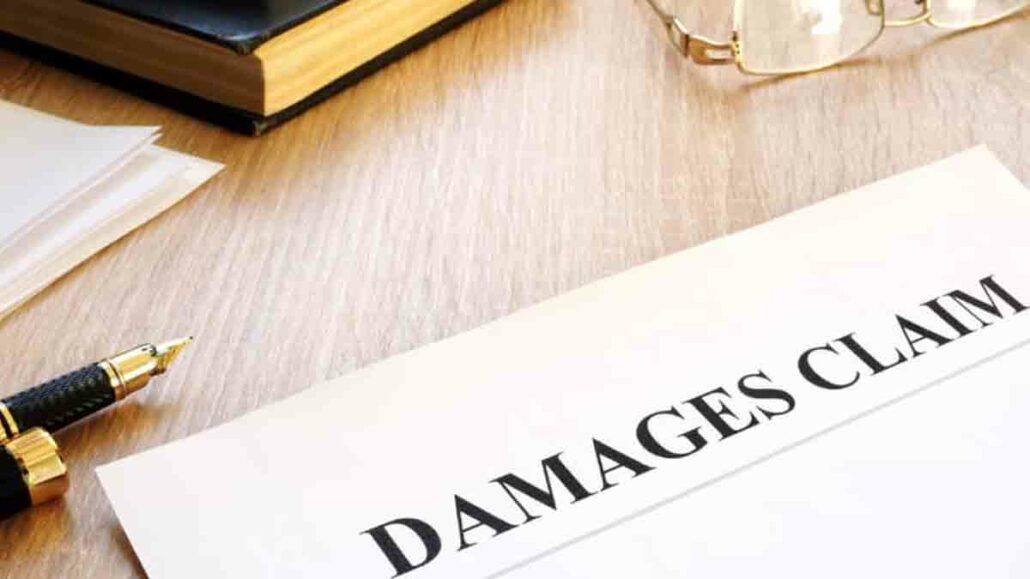A “Claim for Damages” is a formal document outlining the financial compensation you believe you’re owed after suffering a loss due to another party’s actions or inactions. This claim is typically filed when someone breaches a contract, neglects a duty, or causes harm to your property or person. The purpose of the claim is to be reimbursed for the losses you’ve incurred, which can encompass a variety of things, such as medical bills, property repairs, lost wages, or even emotional distress.

It’s important to note that “Claim for Damages” can encompass a wide range of situations. Whether you’re dealing with a car accident, a faulty product, or a broken contract, this type of claim can be used to seek compensation for your losses. The specifics of your claim will vary depending on the circumstances, but the core purpose remains the same: to hold the responsible party accountable and recover the financial losses you’ve suffered.
What is a Claim for Damages?
A claim for damages is a legal action seeking financial compensation for losses incurred due to the wrongful conduct of another party. This “wrongful conduct” can take many forms, such as:
- Breach of contract: When a party fails to uphold their obligations under a legally binding agreement.
- Personal injury: When someone is hurt due to another’s negligence or recklessness.
- Property damage: When someone’s property is damaged or destroyed due to another’s actions.
- Product liability: When a defective product causes harm.
Types of Damages
There are two main categories of damages recoverable in a claim:
- Compensatory damages: Aim to make the injured party whole again by reimbursing them for their financial losses. This can include medical expenses, lost wages, property repair costs, and pain and suffering.
- Punitive damages: Awarded in rare cases to punish the at-fault party for egregious or intentional misconduct and deter similar behavior in the future.
Grounds for Filing a Claim
Several situations can warrant a claim for damages. Here are some common examples:
- Personal Injury: Accidents caused by negligence (e.g., car accidents, slip and falls)
- Medical Malpractice: Negligence by a healthcare professional resulting in injury
- Product Liability: Defective products causing injury or property damage
- Property Damage: Damage to your property caused by another party’s actions
- Breach of Contract: When a party fails to fulfill their contractual obligations
How to File a Claim for Damages
- Gather Evidence: Document your losses with receipts, photographs, medical records, and witness statements.
- Identify the Responsible Party: Determine who is liable for your damages.
- Calculate Your Damages: Estimate the total cost of your losses, including medical bills, lost wages, and property repair.
- File a Claim: Depending on the situation, you may need to file a claim with your insurance company or directly with the responsible party.
- Negotiate a Settlement: You may be able to reach a settlement with the responsible party to avoid going to court.
- Seek Legal Representation: An experienced attorney can guide you through the legal process and ensure your rights are protected.
Important Considerations
- Statutes of Limitations: Each state has a deadline for filing a lawsuit. Missing this deadline can bar you from seeking compensation.
- Comparative Fault: Some states have comparative fault laws, where your compensation may be reduced if you share responsibility for the incident.
- Alternative Dispute Resolution (ADR): Consider mediation or arbitration as alternatives to a lengthy court battle.
Finding the Right Lawyer
Choosing the right lawyer is essential for maximizing your chances of success. Look for a lawyer experienced in handling cases similar to yours, with a strong track record and positive client reviews.
FAQs on Claim for Damages
How long do I have to file a claim for damages?
The time limit for filing a claim varies depending on your location and the type of claim. It’s crucial to consult an attorney to understand the specific timeframe applicable to your situation.
Can I file a claim for damages without an attorney?
While it’s possible, legal matters can be complex. An attorney can provide valuable guidance, protect your rights, and ensure you receive fair compensation.
What happens if the other party denies my claim?
If your claim is denied, you may need to file a lawsuit to seek compensation in court. An attorney can advise you on the best course of action.

